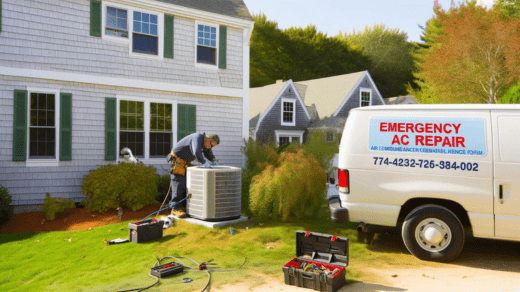
Introduction to HVAC Maintenance
HVAC systems are crucial for indoor comfort, ensuring a consistent temperature throughout the year. Regular maintenance is essential for efficient operation. HVAC systems can become less efficient without periodic check-ups, leading to increased energy consumption and higher utility bills. In the unfortunate event of an unexpected failure, having quick access to emergency AC repair Massachusetts is crucial to restore comfort swiftly. Regular maintenance, however, helps mitigate the chance of such situations by ensuring that all system components are in top condition and functioning correctly.
Why Regular HVAC Maintenance is Crucial
Routine HVAC system maintenance can prevent unexpected breakdowns and improve air quality. According to Energy.gov, well-maintained units use less energy, saving homeowners significant money on utility bills. When maintenance is neglected, system performance can deteriorate, putting more strain and energy on the HVAC components. This results in higher operational costs and can lead to premature system failures. Furthermore, by efficiently filtering allergens, dust, and pollutants, a well-maintained HVAC system helps to considerably improve indoor air quality and foster a healthier living environment.
Key Components of HVAC Systems
Understanding your HVAC system’s key components highlights regular maintenance’s importance. The main components include:
- Thermostat: This regulates your home’s temperature by controlling when the HVAC system turns on or off. Modern thermostats may be set to regulate the temperature automatically, allowing energy savings.
- Furnace: This is responsible for heating the air that circulates through your home. The furnace typically runs on natural gas, propane, or electricity and requires regular checks to ensure it operates safely and efficiently.
- Air Conditioner: Cools the air to maintain a comfortable indoor environment during warm weather. The air conditioner’s efficiency can decrease if not properly maintained, leading to higher energy bills.
- Heat Pump: This device provides both heating and cooling capabilities. It transfers heat from one place to another, offering an energy-efficient alternative to traditional heating and cooling methods.
- Ductwork: A network of ducts distributes heated or cooled air throughout the home. Ensuring ductwork is free of leaks and properly insulated is crucial for maintaining system efficiency and indoor comfort.
Common HVAC Maintenance Tasks
Some typical tasks involved in HVAC maintenance include:
- Replace air filters monthly or as the manufacturer recommends to ensure optimal airflow and indoor air quality. Dirty filters can restrict airflow, making the system work harder and reducing lifespan.
- Cleaning and inspecting coils to ensure efficient heat transfer. Accumulating dirt and grime on coils can significantly reduce the system’s efficiency.
- Check refrigerant levels to prevent overworking the compressor and ensure the air conditioner can cool effectively.
- Inspecting ductwork for leaks can lead to loss of conditioned air and increased energy bills.
- Testing thermostat functionality ensures the system responds appropriately and maintains the desired temperature settings.
Regular maintenance tasks not only improve efficiency but can also prevent significant issues that could require substantial repairs. For example, regularly changing air filters helps to maintain optimal airflow, which is crucial for the system’s overall performance. Ensuring that the refrigerant levels are adequate prevents the compressor from overworking, thereby extending the lifespan of the air conditioning unit.
Benefits of Hiring Professional Services
Hiring professionals for maintenance ensures comprehensive care and peace of mind, identifying potential issues early and performing detailed inspections beyond the capabilities of the average homeowner.
Moreover, professional service providers can offer targeted suggestions for energy efficiency improvements, thus leading to long-term cost savings. Their specialized knowledge and experience significantly reduce the risk of malfunction and keep your system operating at peak performance. Additionally, professional maintenance services often include warranties or service guarantees, adding an extra layer of security and assurance that the job will be done right.
When to Call a Professional
It’s time to call a professional when you notice issues such as inconsistent temperatures, unusual noises, or higher-than-usual energy bills. Irregular temperatures can indicate problems with thermostat settings or issues within the HVAC system. Unusual noises, such as banging, squealing, or grinding, can be signs of mechanical problems that need immediate attention.
Regular professional check-ups can also prevent these issues from arising. If you encounter problems beyond the basics, such as significant leaks, electrical issues, or persistent mechanical problems, relying on expert service providers is safer and more efficient. Professionals can accurately diagnose and address issues hidden from an untrained eye, restoring your system to optimal functioning without causing further damage.
Conclusion
Regular HVAC maintenance is crucial for home comfort, cost savings, and equipment longevity. Combining DIY care with professional services ensures efficient operation, improved air quality, and long-term peace of mind.


